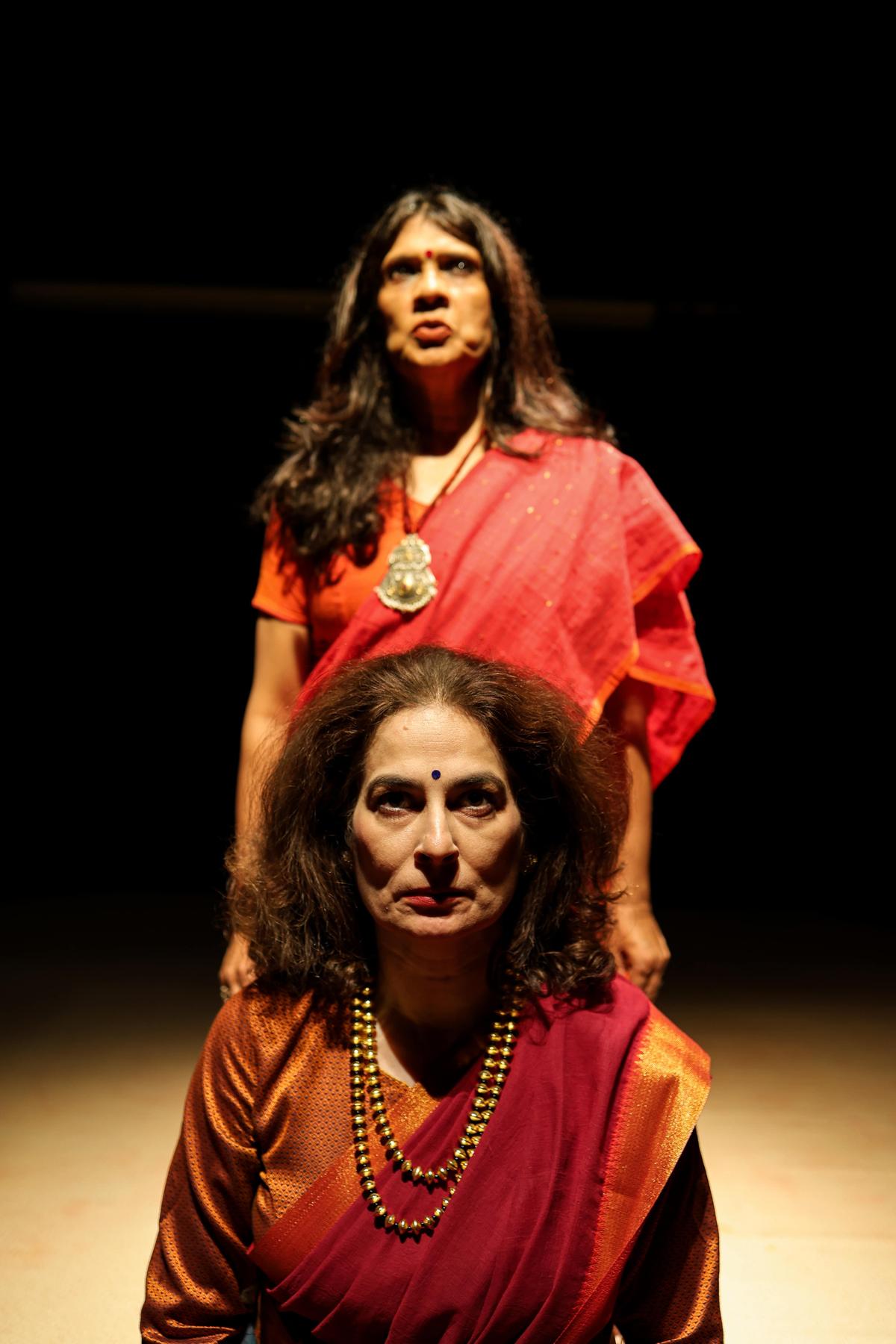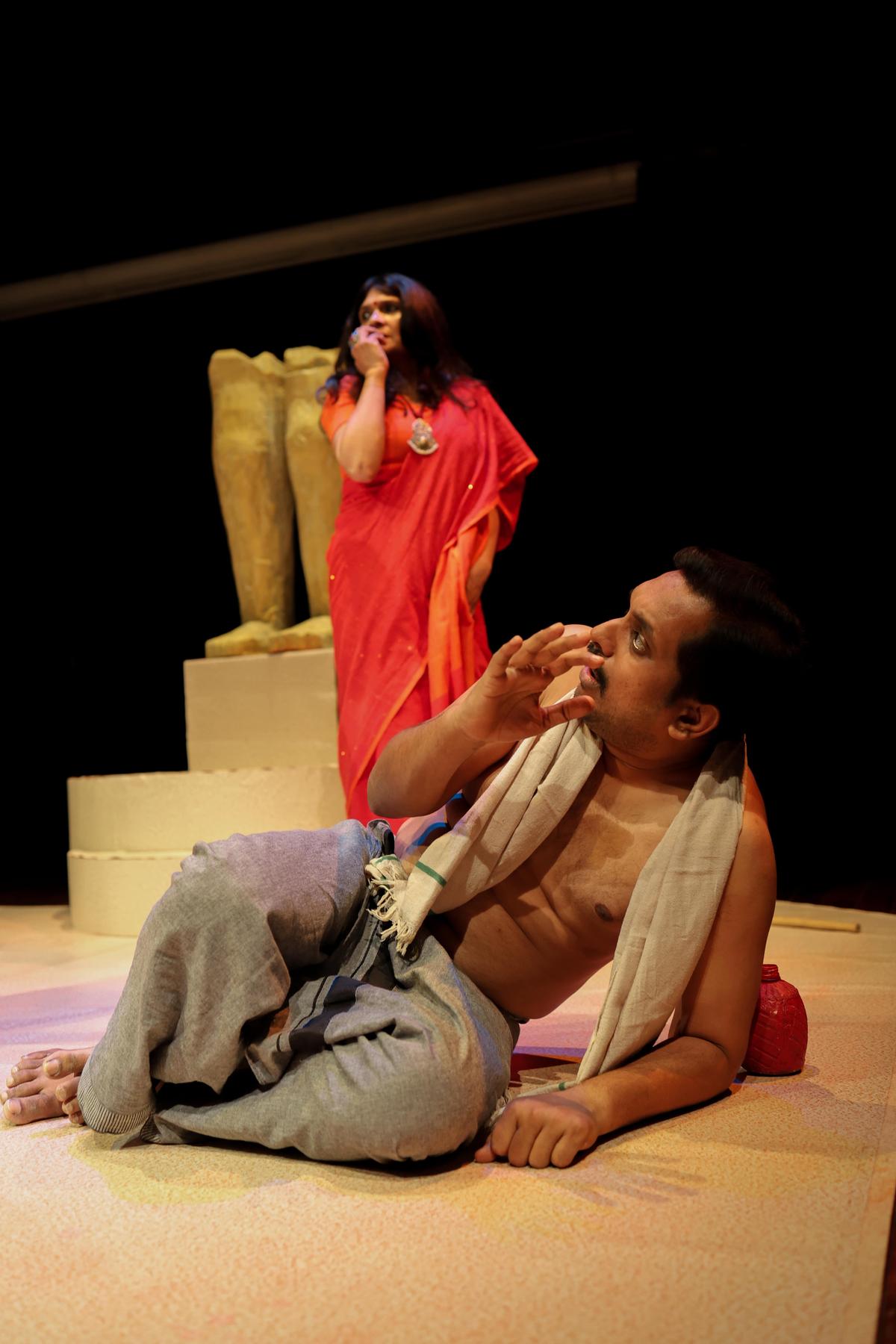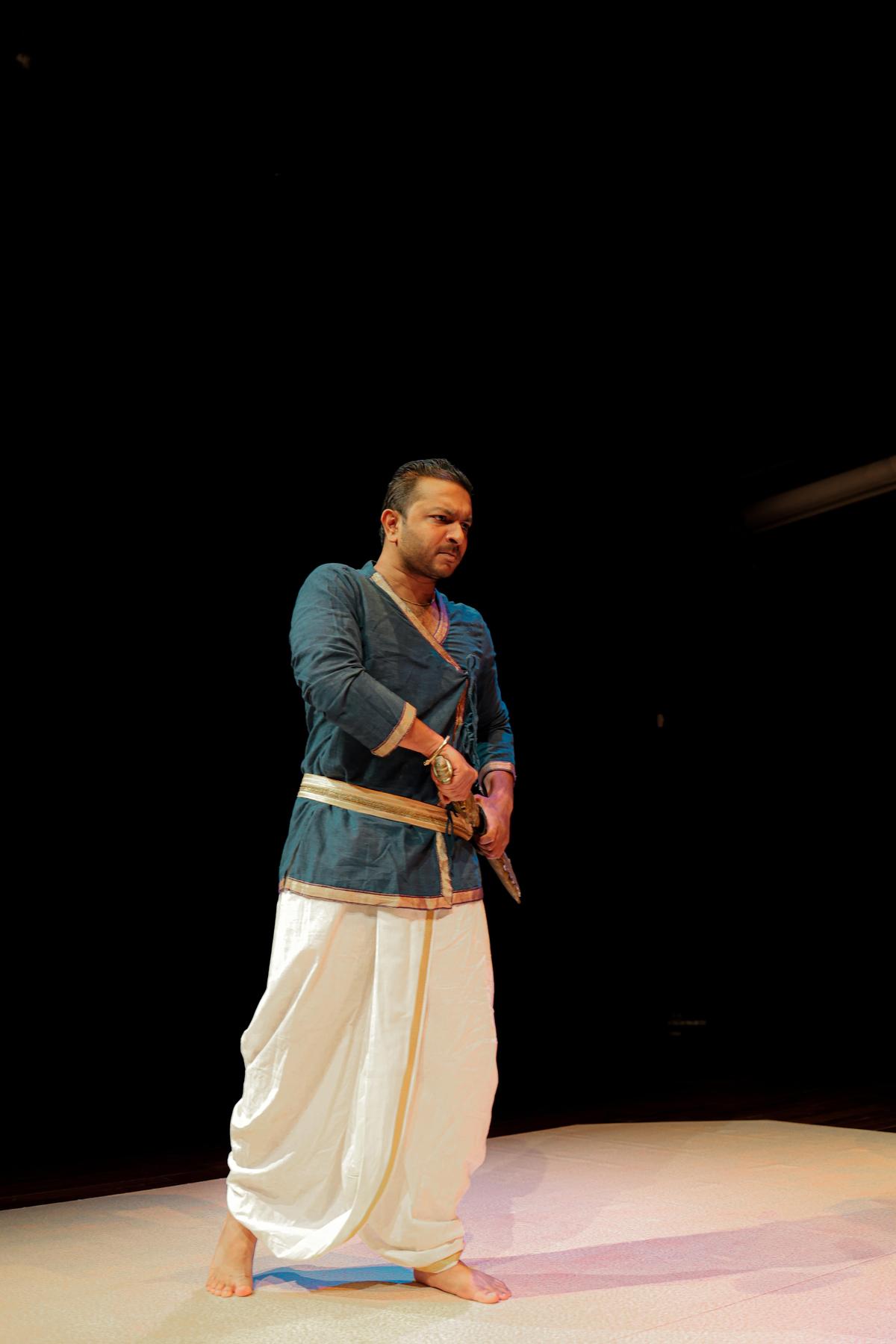
A scene from ‘Bali: The Sacrifice’ | Photo Credit: Special Arrangement
by Girish Karnad Bali: Sacrifice (English adaptation of his 1980 Kannada play Hittina Hunza), a king torn between his love for his Jain queen, who refuses to harm life, and his duty to his mother, who demands a sacrificial ritual. This gripping play explores the complexities of faith, morality, and the power of love.
Director Arundhati Raja loved the exploration of violence and conflicting ideologies in this 90-minute English play. She recreated the play for her theatre company Jagruti Theatre in 2021 to pay tribute to the legendary actor Karnad.
“This play, like Girish Karnad’s plays, is based on an ancient epic, which he has adapted into a skilful, dramatic screenplay. That’s what attracted me Bali and two other plays by Girish Karnad that I directed, Tipu Sultan’s Dreams And Yayati,“However, I have always tried to highlight the underlying issues they present through their dialogue and plot rather than through a conventional approach in design and performance,” says Arundhati.
Arundhati delves deeply into the complexities of the conflict beyond religious differences. She sees the conflict between the king’s mother and the queen as a catalyst rooted in the patriarchal expectation of a male heir. This expectation, she argues, is a pervasive form of violence, often overlooked in favour of its physical manifestations.

A scene from ‘Bali: The Sacrifice’ | Photo Credit: Special Arrangement
“The question here for me is: what is violence? Is violence only when there is bloodshed or physical abuse? Is the pressure on a woman to constantly produce an heir a form of violence? Or a man leaving his infertile wife for someone who might be fertile? Or the humiliation of a lowly mahout who is loved for his voice but mocked for his looks?” she asks.
Arundhati also acknowledges the rich literary heritage that inspired Karnad’s play. Karnad himself mentioned that the play’s origins are linked to the thirteenth-century Kannada epic, yasodhara charitand even similar stories from the first century A.D. This historical context underscores the enduring power of legends and multifaceted characters in Indian culture.
The play’s connection to these ancient narratives highlights how the timeless themes of love, loss and power continue to resonate with audiences even today. “I made no special effort to contextualise anything. It’s all in the script. The adage ‘the stage is a mirror to the audience’ holds true in Karnad’s play,” says Arundhati.
He faced challenges in directing Bali Because of Karnad’s absence. His guidance was invaluable Tipu Sultan’s Dreams And Yayati“He was always available, a phone call away. He would come to watch rehearsals and spend the whole day with the cast,” she recalls. However, once the script captured her imagination, she could immerse herself in that world Bali,
The play serves as a poignant commentary on the enduring nature of violence. Despite the passage of time, humans continue to grapple with various forms of violence. Through an exploration of power dynamics, social pressures, and the devastating consequences of conflict, it offers a reflection on the human condition.
When asked what the audience can learn from the play, which was written by Karnad two decades ago, he replied, “Time passes, but humans do not change. We continue to grapple with the multi-dimensional nature of violence. Can we really do something about it? Should we not try harder? These are questions that need to be pondered over. I believe the play should not preach.”
Bali: The Sacrifice will be staged five times at Jagriti Theatre, Whitefield, between August 30 and September 1. For ages 16 and above. Tickets are available on BookMyShow.

A scene from ‘Bali: The Sacrifice’ | Photo Credit: Special Arrangement

A scene from ‘Bali: The Sacrifice’ | Photo Credit: Special Arrangement